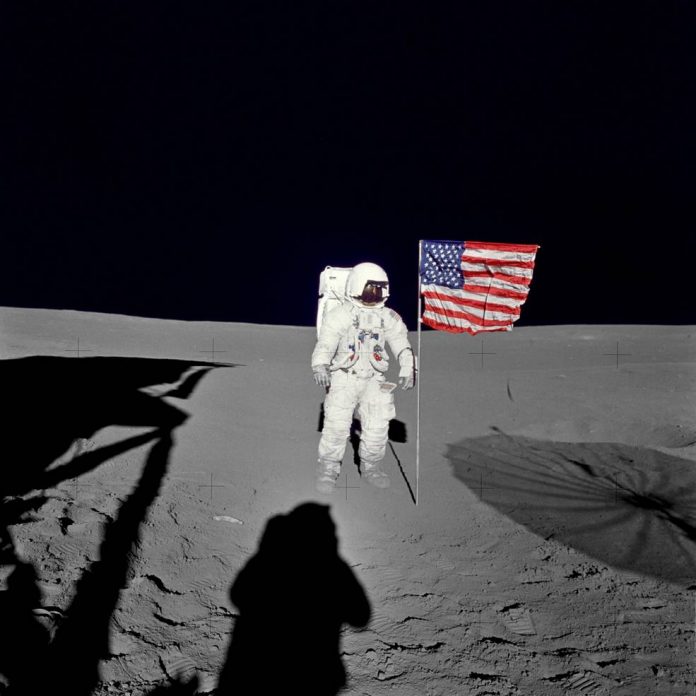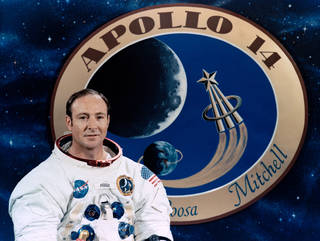
Astronaut Edgar Mitchell, lunar module pilot on Apollo 14, passed away Thursday in West Palm Beach, Fla., on the eve of the 45th anniversary of his lunar landing.
Mitchell joined Apollo 14 commander Alan Shephard, Jr., the first American in space, in the lunar module Antares, which touched down Feb. 5, 1971, in the Fra Mauro highlands. Shepard and Mitchell were assigned to traverse the lunar surface to deploy scientific instruments and perform a communications test on the surface, as well as photograph the lunar surface and any deep space phenomena. It was Mitchell’s only spaceflight.
Mitchell and Shephard set mission records for the time of the longest distance traversed on the lunar surface; the largest payload returned from lunar surface; and the longest lunar stay time (33 hours). They were also the first to transmit color TV from the lunar surface. Mitchell helped collect 94 pounds of lunar rock and soil samples that were distributed across 187 scientific teams in the United States and 14 other countries for analysis.
“On behalf of the entire NASA family, I would like to express my condolences to the family and friends of NASA astronaut Edgar Mitchell,” NASA Administrator Charles Bolden said in a statement. “As a member of the Apollo 14 crew, Edgar is one of only 12 men to walk on the moon and he helped to change how we view our place in the universe. ”
Mitchell was drawn to the spaceflight by President Kennedy’s call to send astronauts to the moon. “After Kennedy announced the moon program, that’s what I wanted, because it was the bear going over the mountain to see what he could see, and what could you learn, and I’ve been devoted to that, to exploration, education, and discovery since my earliest years, and that’s what kept me going,” Mitchell said in 1997 interview for NASA’s oral history program.
“To me, that (spaceflight) was the culmination of my being, and what can I learn from this? What is it we are learning? That’s important, because I think what we’re trying to do is discover ourselves and our place in the cosmos, and we don’t know. We’re still looking for that.”



